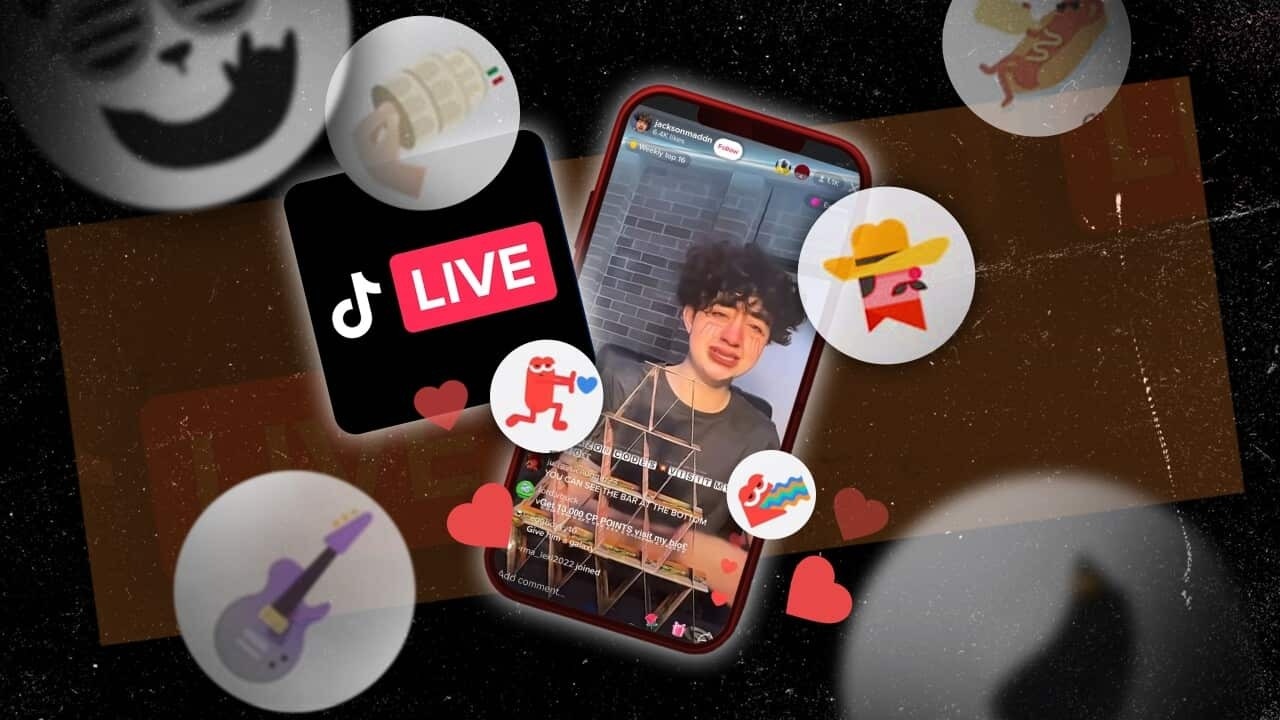
Three children squat in front of the camera, their hands clasped together. “Please support us. We are very poor,” one boy says, looking straight into the lens.
They appear to be living in a mud-brick hut in Afghanistan, living in abject poverty. But the livestream is reaching viewers in the UK and around the world like never before, via TikTok Live.
For hours, they begged for “virtual” gifts that could later be exchanged for money. When they received one, the children clapped politely.
Charge exorbitant fees
In another livestream, a little girl jumped up and shouted “thank you, we love you!” after receiving a rose, a gift from a woman in the US who bought it from TikTok for about $0.01 . However, the truth is that when converted into cash, its value may be less than a third of that amount.
TikTok bans children and other forms of "begging" that it deems exploitative, and says it has strict policies for users who livestream this content.
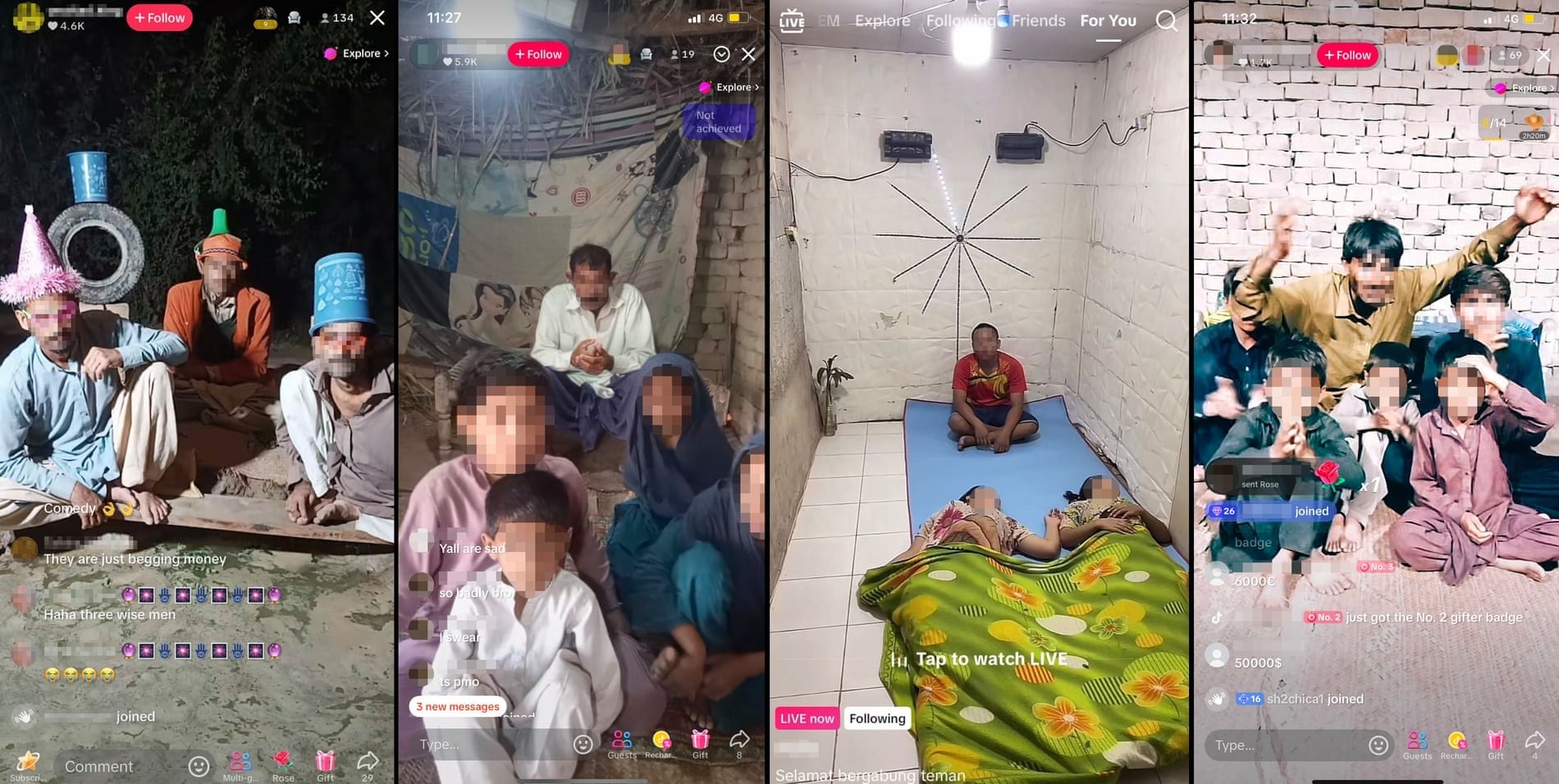 |
Livestreams of "begging for lives" appear frequently on TikTok. Photo: TikTok. |
However, the Guardian investigation found that this situation is widespread on this short-form video platform. In fact, the "begging for life" style livestreams are actively promoted by the algorithm and help TikTok profit from this content, by charging fees and commissions of up to 70%.
Olivier de Schutter, the United Nations special rapporteur on poverty and human rights, called the trend a "shocking development" and accused TikTok and its intermediaries of "profiting from people's misery."
“Profiting from the suffering of others is nothing short of cyberpredatory. I urge TikTok to take immediate action and enforce its policies on exploitative cyberbegging, and to seriously reconsider the commissions they are collecting from the world’s most vulnerable people,” Schutter said.
According to the Guardian , the investigation, conducted between January and April 2025, found evidence of cyberbegging and related activities in countries including Indonesia, Pakistan, Afghanistan, Syria, Egypt and Kenya.
Many of these livestreams feature family members begging for help from the online community, often set against the backdrop of dilapidated homes. However, some of these broadcasts appear to bear the hallmarks of organized online begging.
Organized online begging
The Guardian cites a TikTok account that broadcasts almost daily, often featuring a variety of children. In one broadcast in February, the account featured seven boys begging for presents.
The next day, other boys appeared in the same location, sitting next to the same two adults. After the Guardian alerted TikTok to the account, it was immediately suspended within two hours. Notably, an earlier report via the in-app tool appeared to have been “ignored.”
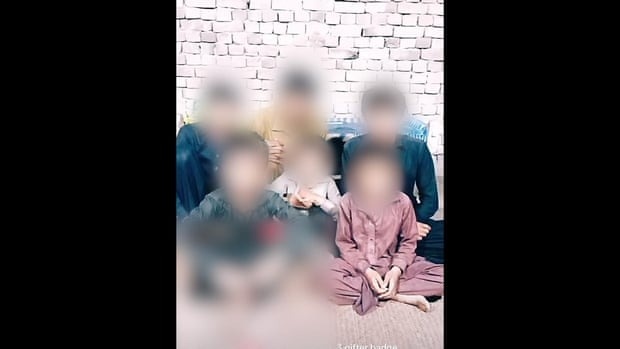 |
A livestream of children looking at the screen and clapping after receiving gifts. Photo: TikTok. |
The latest investigation found another account with 5,300 followers featuring an elderly man in a wheelchair. The Guardian said the account appeared to be run by a third party, but no information was given about its identity. The account description read “poor people” and included a crying face emoji.
More dangerously, in addition to begging, poor people are willing to perform degrading and sometimes dangerous acts in livestreams just to get virtual gifts. Notable dangerous acts include hitting themselves, staying up late, smearing mud on their bodies, or sleeping in front of the camera.
A livestream in Indonesia showed two young girls lying on a tiled floor in a small, windowless, white-walled studio. Just days later, the same account livestreamed a man sleeping on a similar tiled floor.
Another broadcast from Pakistan showed three men sitting in the dark with plastic buckets and party hats on their heads. They appeared to fall asleep on camera, only waking up when they received gifts to perform a dance.
Launched in August 2020, TikTok Live is a part of the app where creators can broadcast to viewers in real-time.
According to TikTok, 100 million people will go live by 2024, reaching “billions of users.” These users can interact with creators directly on the stream by posting comments or sending gifts.
Novita Anggraeni, an expert on social inclusion in Indonesia at the charity Care International, said many creators used TikTok Live to “show off their talents” or “connect with people.
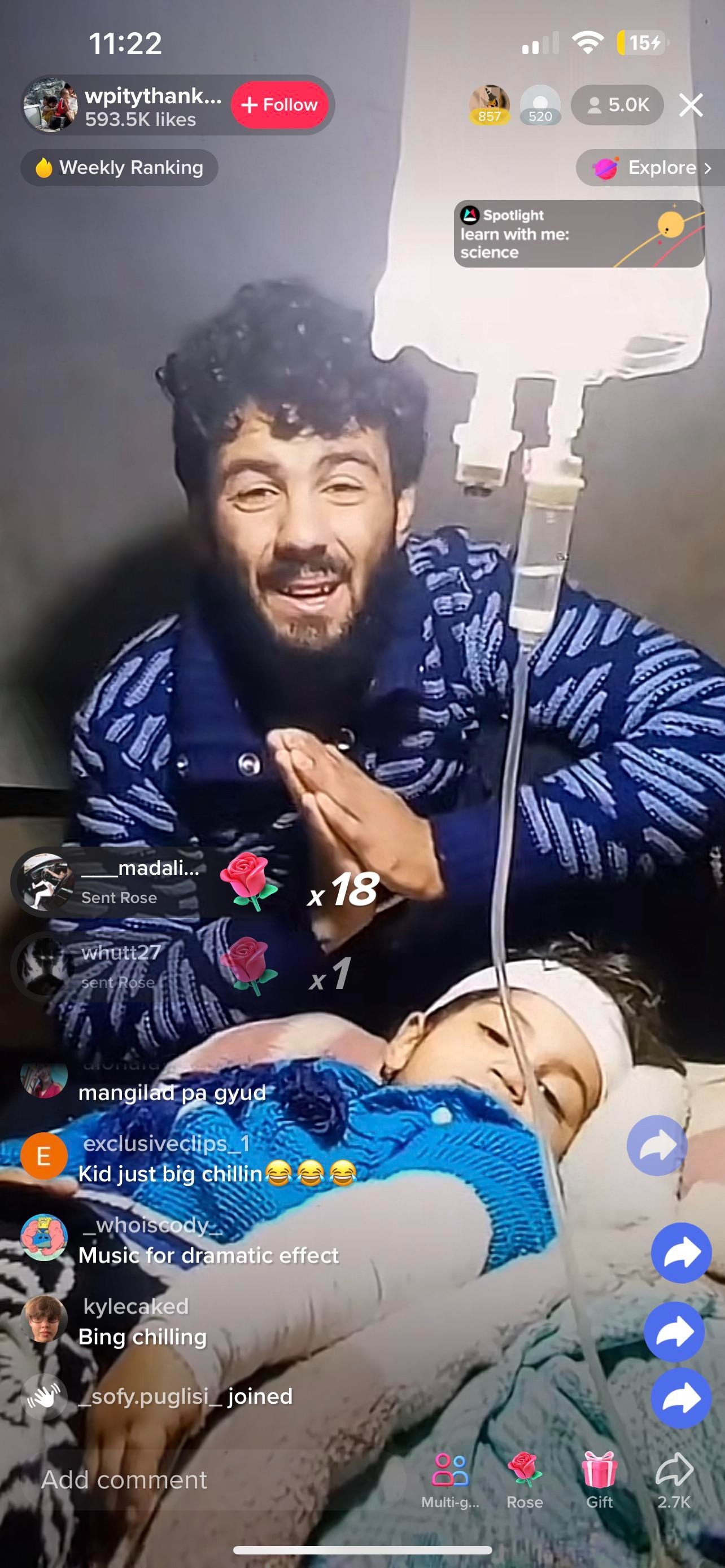 |
The Guardian claims that "begging for life" livestreams are actively promoted by TikTok's algorithm and generate huge profits by charging fees and commissions of up to 70%. Photo: TikTok. |
The platform is often used by people filming themselves singing, dancing, playing video games, drawing or cooking. However, Anggraeni noted that TikTok Live is increasingly being abused by people who see it as a “shortcut to making money”, with “toxic” videos of begging and related behaviour proliferating rapidly.
Meanwhile, Marwa Fatafta of digital rights organization Access Now said the way TikTok Live is designed encourages cyber-begging and similar risky behaviors because the interactive mechanics increase rewards.
“TikTok is not doing enough to ensure that this undesirable outcome is addressed. At this point, exploitation for the purpose of organized begging is not only a foreseeable risk, it is an existential risk. So the platform needs to address this,” Fatafta added.
After the investigation was made public, TikTok said it had taken strong action, including removing the accounts flagged by the Guardian . "Any livestream content featuring children asking for gifts is not allowed on TikTok," a TikTok spokesperson said.
Source: https://znews.vn/nguon-thu-khong-tuong-cua-tiktok-tu-an-xin-mang-post1544005.html


![[Photo] Thousands of Buddhists wait to worship Buddha's relics in Binh Chanh district](https://vphoto.vietnam.vn/thumb/1200x675/vietnam/resource/IMAGE/2025/5/3/e25a3fc76a6b41a5ac5ddb93627f4a7a)






































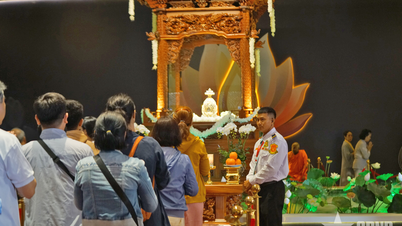

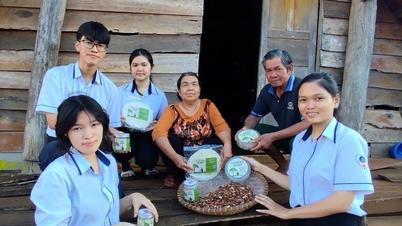



































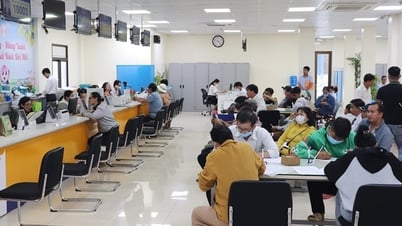













Comment (0)